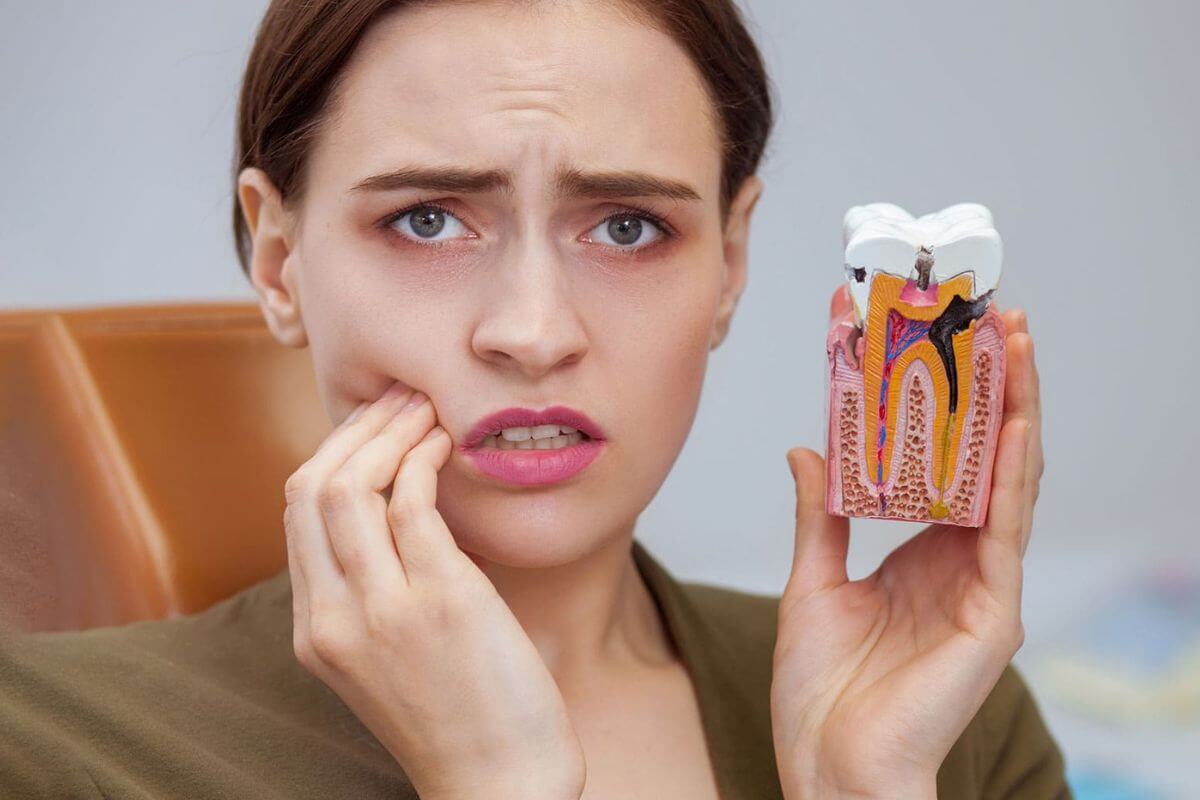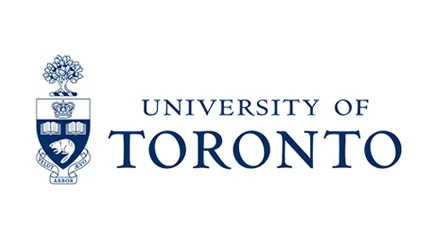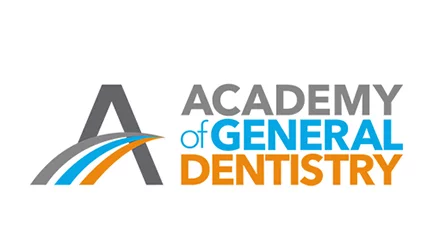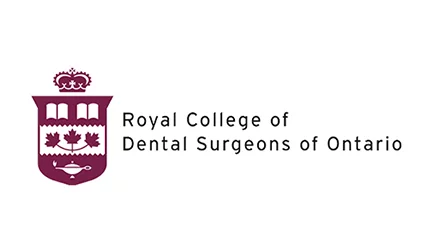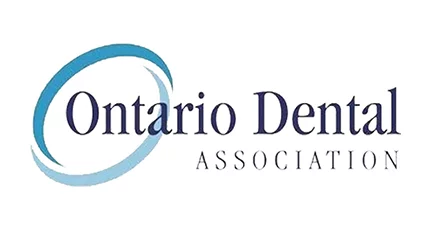THE CONNECTION BETWEEN CAVITIES AND HEADACHES EXPLAINED SIMPLY
Did you have the knowledge that bad teeth can lead to headaches? It’s true!
Many people believe that the dental health of our teeth and mouth has little influence on the rest of our body. However, the truth is that dental health and overall wellness are remarkably related.
How can something so seemingly unrelated, like tooth pain, cause migraines? Let’s discuss warning signs and the times when you’re experiencing a “dental headache” that might be an emergency.
HOW CAVITIES CAUSE HEADACHES?
Yes, bad teeth can indeed cause headaches. It’s not easy to give an exact count of those suffering from headaches due to dental issues; research has identified dental problems like:
- Temporomandibular joint disorder (TMJ)
- The periodontal condition (gum disease)
- It is a bruxism (tooth grinding)
In one report, about 30 percent of people suffering from chronic headaches might suffer from TMJ-related symptoms. Another study revealed that headaches occur in around 9-5 percent of adults who suffer from bruxism.
The human body is incredibly efficient; however, its effectiveness may occasionally cause problems on its own. In this instance, the effectiveness (and the problem) originates from the trigeminal nervous system, which is the brain nerve that regulates sensations in the face, nasal cavity, teeth, and motor control for jaw muscles and mouth.
TRIGEMINAL NERVE CONTROLS LOTS OF SENSORY INFORMATION:
The trigeminal nerve controls lots of sensory information, and it is also the root of many other nerves in the face as well as the mouth.
The problem is that a pain signal originating from one branch of the trigeminal nervous system, which includes the maxillary nerves that run through your mouth, may cause pain signals to different branches of your trigeminal system. The signal is intended to indicate a minor problem (like the small size of a cavity or sensitivity to temperature) may inadvertently transform into one that causes headaches, jaw pain, and facial discomfort.
Although most neurologists are well-versed in the link between the health of their teeth and headaches, certain general practitioners aren’t. The exact mechanism that explains how the craniocervical and orofacial nerves connect in a way that is complicated as well.
Neuromuscular Dentistry is a relatively new area of study. If you think you’ve exhausted all the possibilities, It’s beneficial to speak with an expert in a variety of fields. The human body seldom can be classified into neat categories, and the distinctions between medical disciplines can hide possible solutions.
WHY DOES THIS TAKE PLACE?
It turns out that the infection and inflammation resulting from gum diseases are actually spreading to other areas of the body, like the neck and head. This could cause tension in the muscles, which could lead to headaches.
For bruxism and TMJ, the cause is simpler. The constant tension that you feel in your jaw muscles could extend to the edges of your cheeks towards your temples, which can cause tension headaches. If you’ve experienced frequent toothaches and headaches, you might want to consider talking to your dentist regarding professional treatment and gum cleaning.
SIGNS YOU HAVE BAD TEETH:
Here are a few signs that you could have bad teeth:
- Your breath smells unpleasant. It could be a sign of gum decay or tooth disease.
- You may have cavities. They are tiny holes in your teeth that are caused due to tooth decay. If you suffer from cavities, having them filled promptly is vital to prevent any further harm.
- Your gums appear either red or swollen, or they bleed easily. Healthy gums are pale and do not bleed easily. If your gums are red and swollen or bleeding frequently, it may be an indication that you have gum disease.
- Your teeth appear discolored or yellow. If your teeth appear discolored or yellow, this could indicate tooth decay or poor hygiene.
- There is pain when you are chewing or biting. If you feel discomfort when you bite or chew, it could be an indication of a toothache or tooth decay.
The proper care for your teeth is crucial to keeping them in your overall health. So do not ignore any issues that could be brewing!
OTHER WAYS YOUR DENTAL HEALTH CAN CAUSE HEADACHES:
If you believe that nerves crossing or tooth decay are the sole avenues that can affect your oral health and cause headaches, reconsider.
An unbalanced bite, grinding your teeth, not wearing your retainer regularly, and issues of the jaw joint may cause migraines and headaches. Even more troubling, long-term tension headaches can contribute to the cycle when you do not consciously tighten your jaw. The (often irregular) wear and tear on your teeth can cause more tension in your jaw and face.
However, there are plenty of choices in these instances. Dental cosmetics can assist you in modifying your bite and reduce tension in your jaw and face.
Sometimes, all you need is a short course of orthodontic treatment or perhaps a new retainer to get rid of the pain that has been bothering you for years. There are other options available for those who wear dentures because their bite patterns can be altered without braces or surgery.
Your oral health is a factor in many other factors that affect your health. Your dentist can aid you with more than a sparkling smile.
HOW TO TELL IF YOUR HEADACHE IS CAUSED BY YOUR TEETH?
Here are a few signs that your headache could be due to your teeth:
- The pain is centered on your mouth, jaw, or even your teeth.
- There is pain or discomfort when you chew or bite.
- If you have a toothache or tooth sensitivity.
- There is tenderness or swelling in your gums.
- You’ve had a history of dental issues, including gum disease or cavities.
There is no doubt that the majority of dental problems won’t cause headaches, and they differ from person to person. To get rid of serious health issues, visiting the dentist could put your mind at peace.
WHEN HEADACHES CAUSED BY TEETH IS A DENTAL EMERGENCY?
Headaches caused by dental problems could be the result of a toothache. Here are some indicators that indicate you might be suffering from a dental emergency:
- If you are suffering from tooth pain, it is severe and cannot be controlled by over-the-counter pain medicine.
- There is a tooth in your mouth that has been removed.
- There is a tooth in your mouth that is broken or cracked.
- If you have a mouth-related injury, for example, a laceration or cut that is bleeding heavily and won’t stop.
If you have an emergency with your teeth dental emergency, your dentist could be able to visit you the next day or recommend the patient to an expert who could assist. It’s crucial to treat dental emergencies as quickly as you can to avoid any further harm and ensure the best result.
CONCLUSION:
In the end, poor dental health can cause headaches. The inflammation and infection brought on by gum disease may be spread to other areas in the body, such as the neck and head, which can cause tension in the muscles and eventually headaches. Tension headaches can also result due to regular teeth grinding as well as if you suffer from TMJ.
If you’ve been suffering from frequent headaches or bad dental hygiene, you should consider speaking with your dentist about treatment and cleaning for your gums. Maintaining a healthy oral hygiene routine is essential not just for your gums and teeth but also for overall well-being and health. Maintaining your dental health can avoid gum disease and headaches that may result from it.




